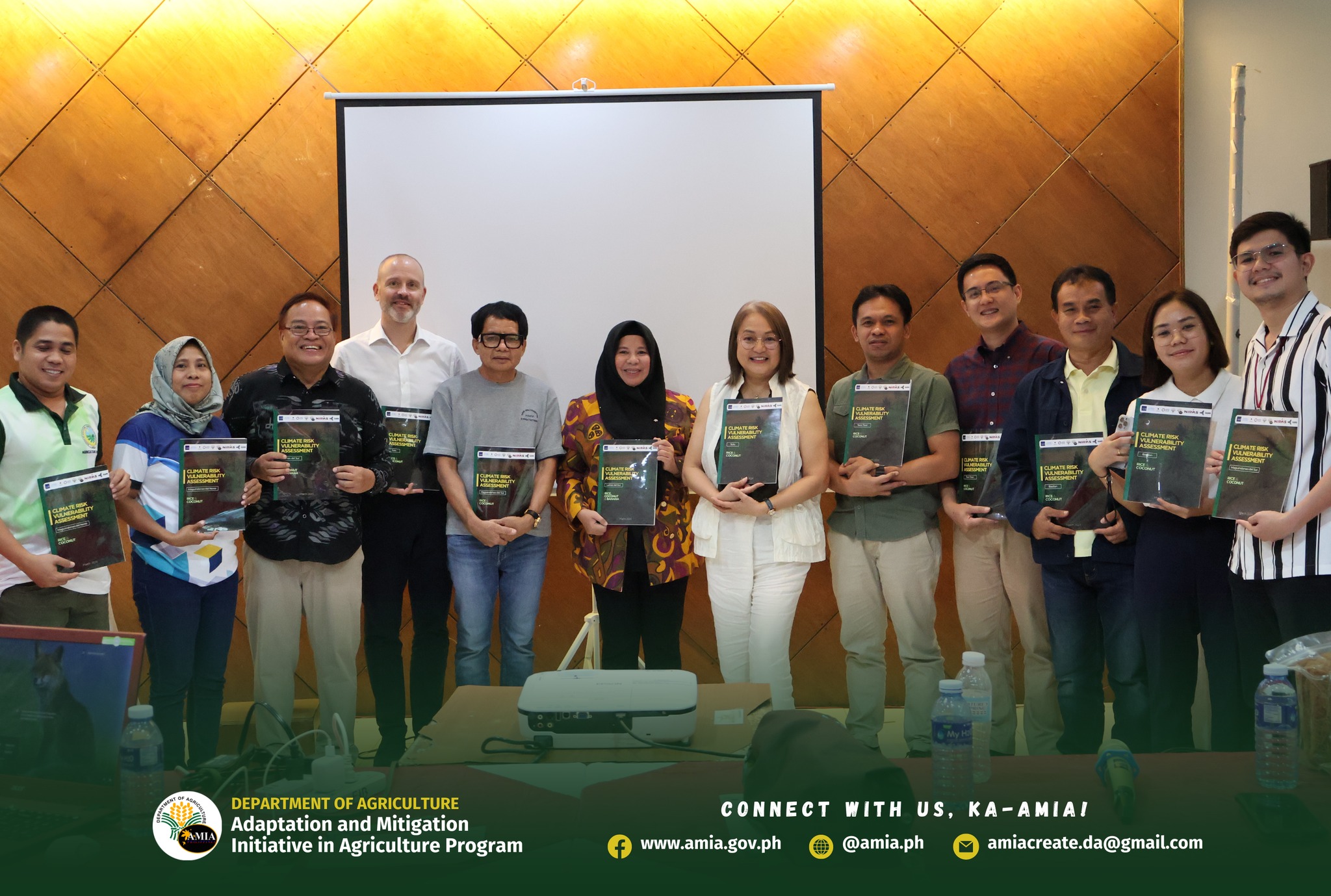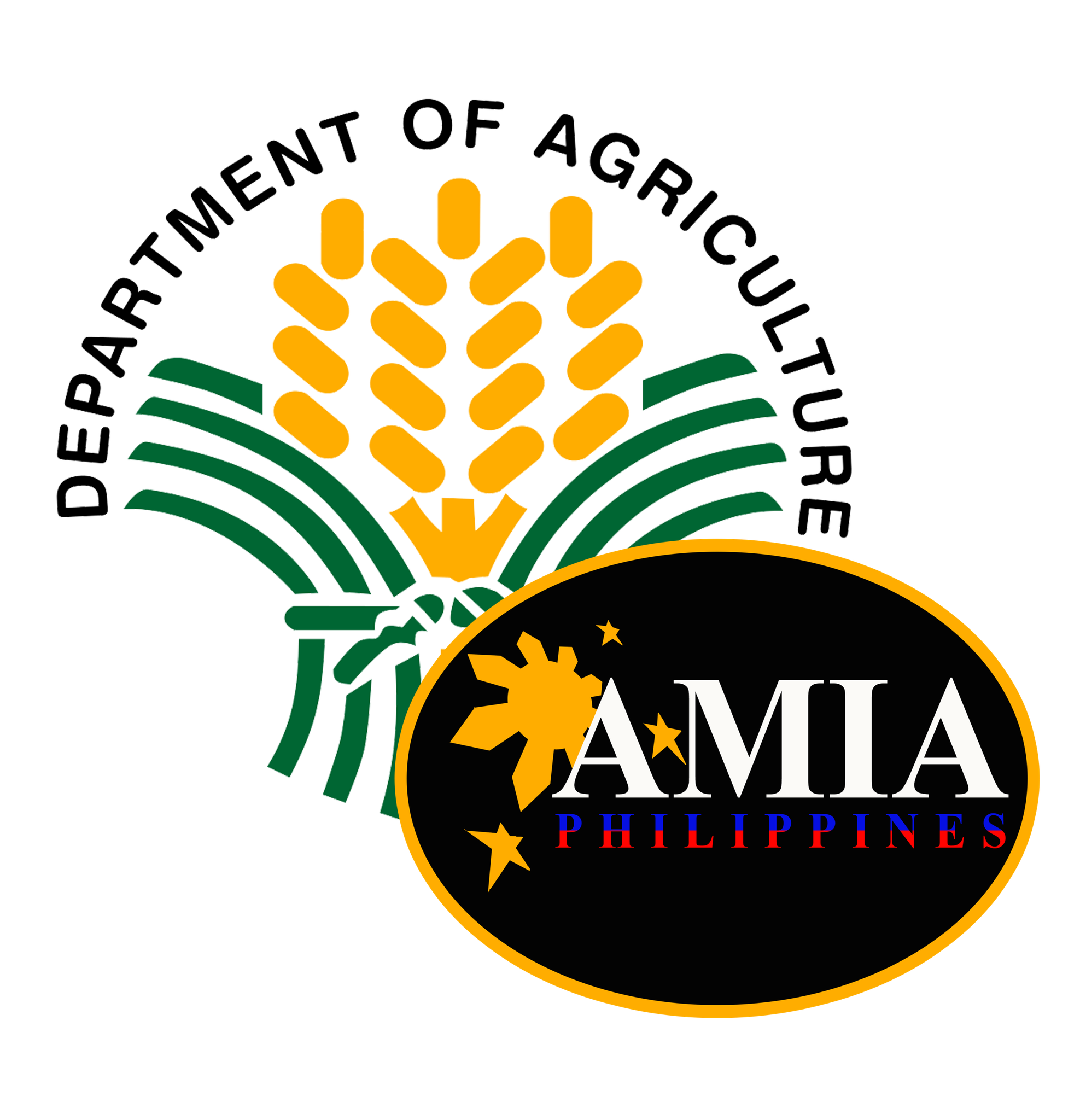
The Department of Agriculture (DA) Climate Resilient Agriculture Office (CRAO), together with its partners, officially turned over to the Ministry of Agriculture, Fisheries, and Agrarian Reform (MAFAR) of the Bangsamoro Autonomous Region in Muslim Mindanao (BARMM) the Climate Risk Vulnerability Assessment (CRVA) Reports of priority crops in each of the six provinces of the BARMM last April 14, 2024 in Cotabato City.
The development of the CRVA for BARMM provinces was conducted through the Asian Development Bank (ADB) Technical Assistance (TA) for Agriculture, Natural Resources, and Environment (ANRE) under Subprogram 2 – Reform Area 2: Resilience to Climate Impacts Enhanced of the Climate Change Action Program.
DA CRAO and Adaptation and Mitigation Initiative in Agriculture (AMIA) Director Alicia G. Ilaga led the activity alongside its partners from the ADB TA, including NIRAS Manila, Inc. and its technical team for the project.
During the event, the CRVA Reports for the provinces of Maguindanao del Norte, Maguindanao del Sur, Lanao del Sur, Basilan, Sulu, and Tawi-Tawi were turned over to the officials and other representatives of MAFAR BARMM, including Ms. Arphia T. Arphia T. Ebus, Chief of Staff of the Office of the Minister; Engr. Ismail Guiamel, Director Il for Agriculture Services; Dr. Ronjamin M. Maulana, Provincial Director-MAFAR Maguindanao; Mr. Hanie Muadz Junuban, Provincial Director-MAFAR Basilan; Baharen A. Piang, OIC-Chief of Operation of the Field Operation Division; and Engr. Baidido A Lawan, Science Research Specialist Il for Climate Change.
In her message, Dir. Ilaga shared the CRVA journey, highlighting that the development of the CRVA was in line with the DA AMIA’s efforts to establish both the science and practice of adaptation in the agriculture sector in the country.
“Our focus was on building climate resiliency at the community level, but we realized that we needed to develop the science behind adaptation first, specifically, on identifying which areas to target or prioritize based on scientific evidence. Thus, the development of a formula for vulnerability through looking at the exposure to various hazards, the sensitivity of crops, and the adaptive capacities of communities,” she stated.
In closing, she urged the DA’s partners in MAFAR BARMM to utilize the CRVA’s wealth of information to enhance their efforts in building climate resilience.
“Integrating the results of the CRVA in your plans, programs, and projects will undoubtedly boost our collective efforts in addressing the climate adaptation needs of our farmers and fisherfolk here in BARMM. Moreover, I hope that this partnership is a start of more resiliency-building collaborations between the DA and MAFAR under the AMIA Program,” she said.
Also present during event were NIRAS Manila Inc. Managing Director in the Philippines, Mr. Antti Inkinen; Mr. Cesar Umali, Project Team Leader; Mr. Jessie Manuta, CRVA National Expert; and Mr. Jonathan Austria, CRVA Data Specialist (Joy F. Calvar, DA CRAO). ###
